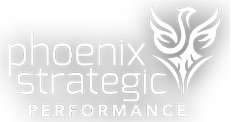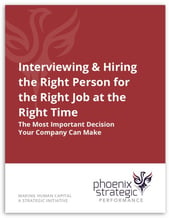Take an Organizational Quality Assurance Diagnostic.
As organizations move through continual change, staying up-to-date and relevant is now a strategic imperative. Nowhere in the organization is this more relevant than to a Quality Assurance Department whose function is to always maintain quality despite the change swirling around it. The challenge of managing quality assurance in a changing workplace is analogous to changing the tires on a car while the car is traveling at 60 miles per hour. As difficult as it may seem, the goal is to always maintain Quality Assurance.
One miss with Quality Assurance and the impact on the organization can be:
- B-2-B to other businesses that you are supplying
- B-2-C to the end consumer
- Negative impact to the enterprise
- Negative impact to the brand
- An invitation for your competition to enter your domain
- Litigation
- Social Media Impact
- The News
Today, the impact can be both immediate and catastrophic.
Quality Assurance should be seen by the organization as a business driver and a strategic partner integral to driving organizational goals and initiatives. However, traditionally, the focus of Quality Assurance has been two-dimensionally focused on:
- Product
- Processes
Let’s look through another lens to help evaluate Quality Assurance and future-proof your quality organization given that in this era of growth, we are experiencing an increased:
- Need for innovation and productivity
- Need to lead through the speed of change
- Need for the greater importance of human capital to drive innovation, productivity, and lead change
While products and processes can define quality assurance on paper, the people involved with and in charge of these processes will make or break a dynamic, change-oriented quality assurance function.
Three Quality Assurance Challenges:
- What is the strategic impact when overall business demands outpace quality assurance capabilities and capacity?
- How do you deliver high-quality, sustainable results with ‘forecastable’ predictability?
- How do you evaluate why and where the cost of quality assurance underperformance is decelerating growth?
Remember, the best corporate strategy can fail at implementation without:
- A vision for quality assurance
- An aligned human capital strategy supporting it
- A culture of quality
The Questions:
As the rate of change increases, we find that skills can become obsolete in 2.5 years. Given this dilemma, you must ask yourself these six important questions:
1. Can your people innovate and execute strategy with competitive speed?
2. Can you deploy human capital confidently, on demand, with agility and resiliency?
3. Are you evaluating your people through the lens of value creation?
4. What is the risk/cost of not investing in human capital relative to:
- Strategic goals and competitive advantage
- ROI
- Organizational agility and resiliency
5. Would you rehire your current team of people to take your organization into the future?
6. How does your organization and its people align to:
- The future
- Increased change
- Business initiatives and their challenges
Often, the impact of human capital is overlooked, but it is crucial to consider quality and your human asset management strategy as a strategic business differentiator for your organization. We invite you to download our presentation, "Future Proof Your Quality Organization", and learn about the importance of quality as a business driver for the organization.





